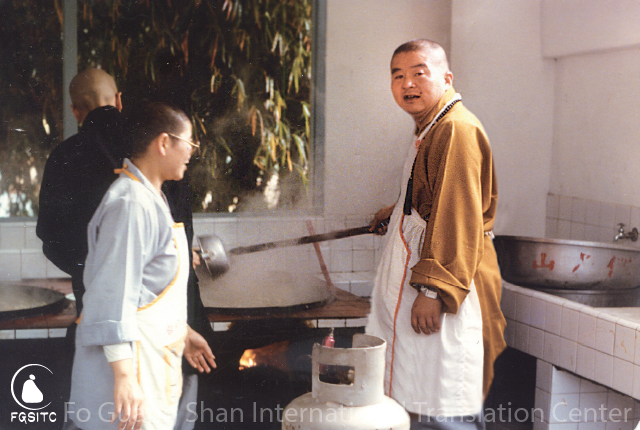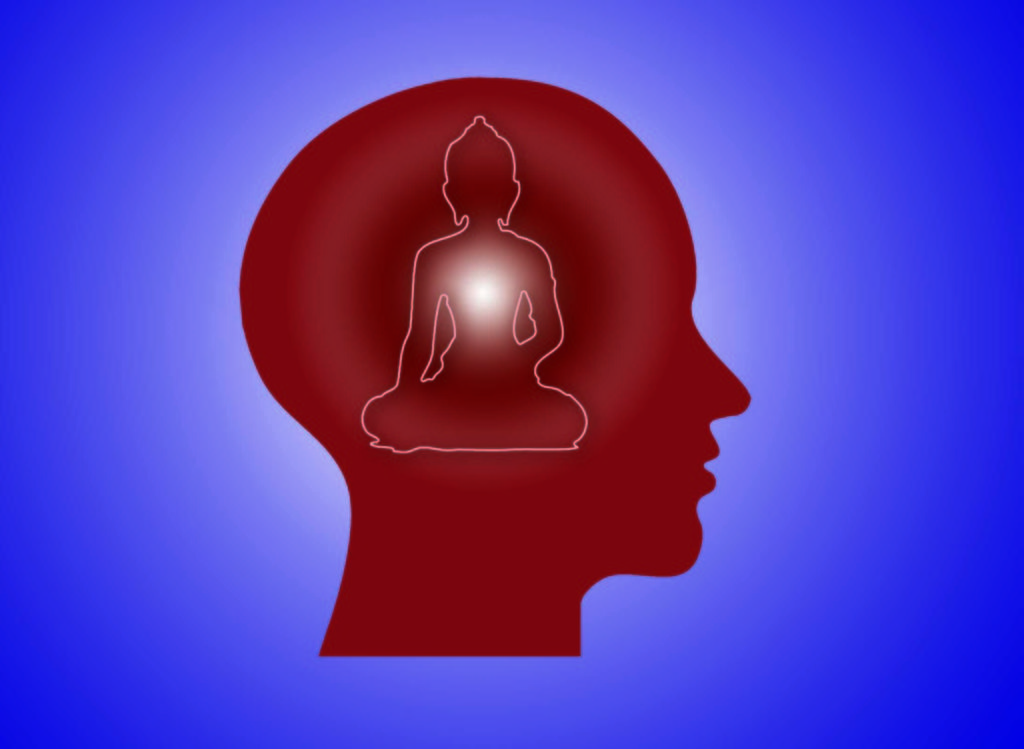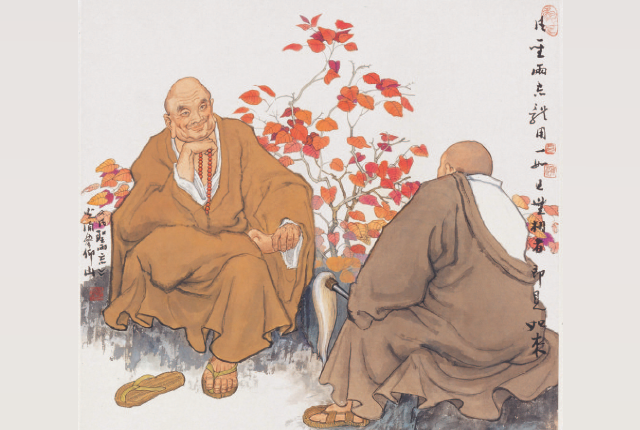
If we want to understand what the Dharma teaches us about building affinity and living in harmony with others, we must first understand the four great all-embracing virtues. The Buddha teaches that for us to realize our true capacity of connecting with and serving our fellow citizens, we have to first build a good rapport, and the four virtues are tools to that end.
The four virtues are giving, speaking with kind words, conducting oneself for the benefit of others, and adapting oneself to others.
Speaking with Kind Words
To practice the second virtue regarding amiable speech, we should compliment rather than reprehend others, encourage them rather than criticize, and use loving words rather than scathing remarks.
Many arguments and fights have been started by an unkind utterance that could have easily remained unspoken or been replaced with gentle words instead. What was once a peaceful community can degenerate very quickly into a feuding community if lies, slander and gossip spread throughout its inhabitants.
If we are not paying attention, our careless words can destroy relationships. If we are mindful in our speech, being cautious always to speak with affection, our relationships will be grounded in trust and compassion.
Loving-kindness and compassion are something that people in this life of suffering depend on. Loving-kindness and compassion provide a ray of hope in life. Society is ruthless, tyrannical, and disorderly, and today, more than ever before, people must insist on habits of being amiable and equitable with one another. People must learn to put themselves in the shoes of others and even to consider all sentient beings as one would himself or herself. This will give rise to loving-kindness and compassion.
In the words of Buddhism, “Loving-kindness and compassion have no match.” Loving-kindness and compassion can overcome all negativity. One thought of loving-kindness and compassion can eliminate greed, anger, arrogance, and fear. In this modern age of scientific development, it has been found that human communication is far more important than all the discoveries of science and technology.
How can there be perfect communication among people? It can only happen through the practice of loving-kindness, compassion, and the four means of embracing virtues: giving charity, affectionate speech, conduct beneficially to others, and cooperation with others and adaptation of oneself to others to lead them to the truth.
Only when people consider all sentient beings with the eyes, words, expression, voice, and mind of loving-kindness and compassion and create affinities with all sentient beings can society achieve harmony and peace.
From Living Affinity, written by Venerable Master Hsing Yun.
Image from Pixabay.












